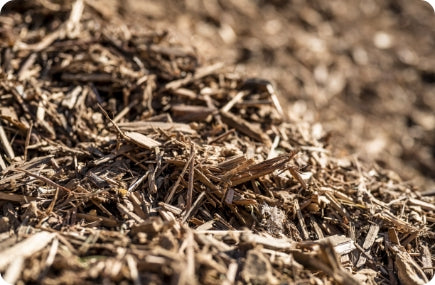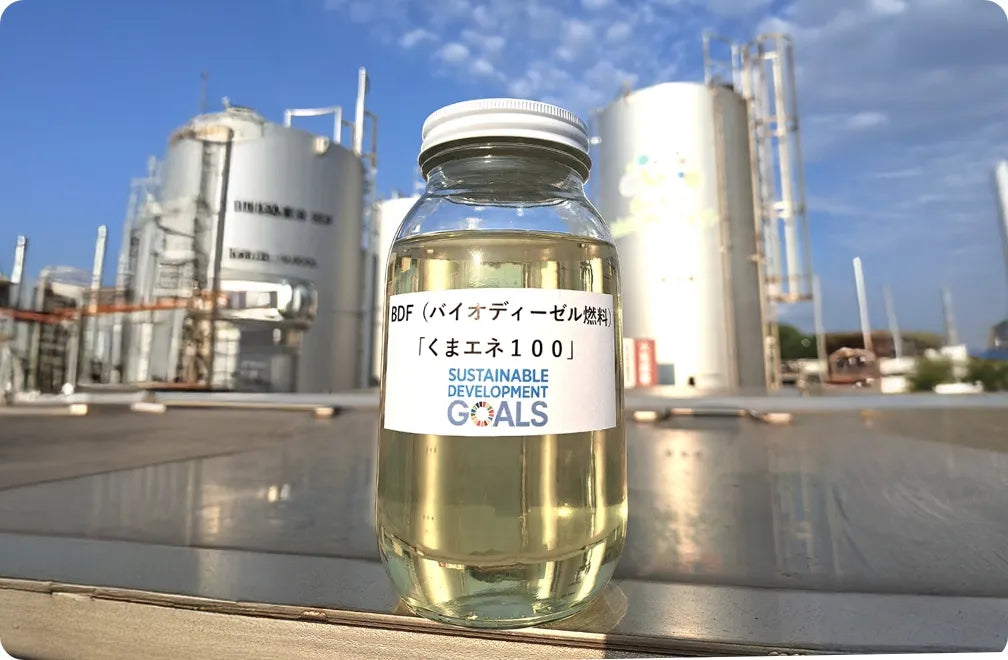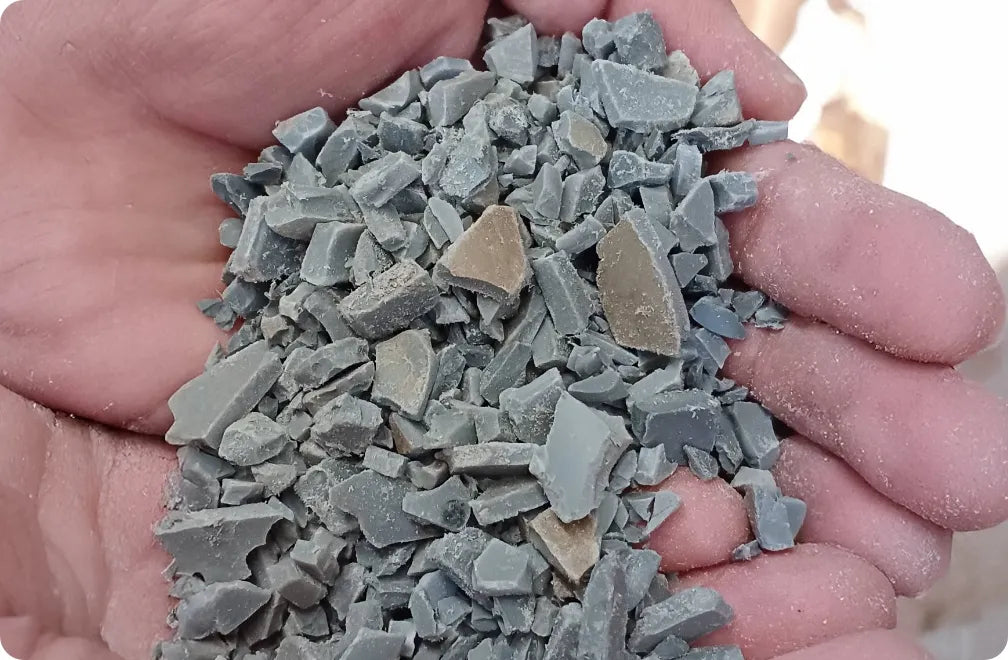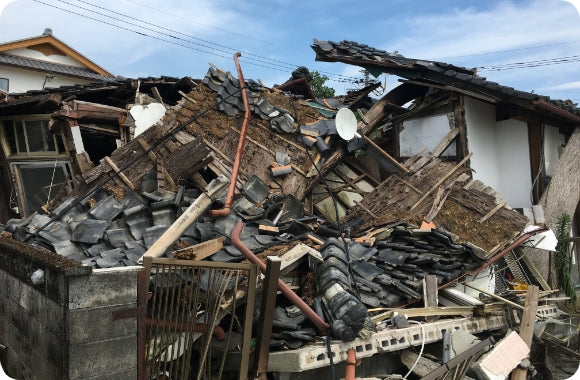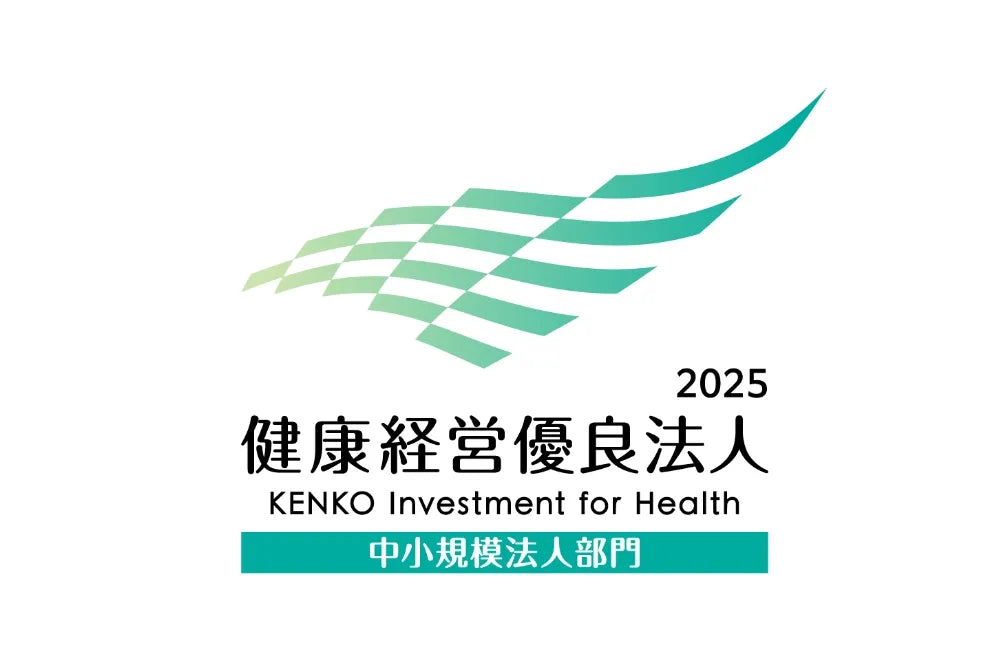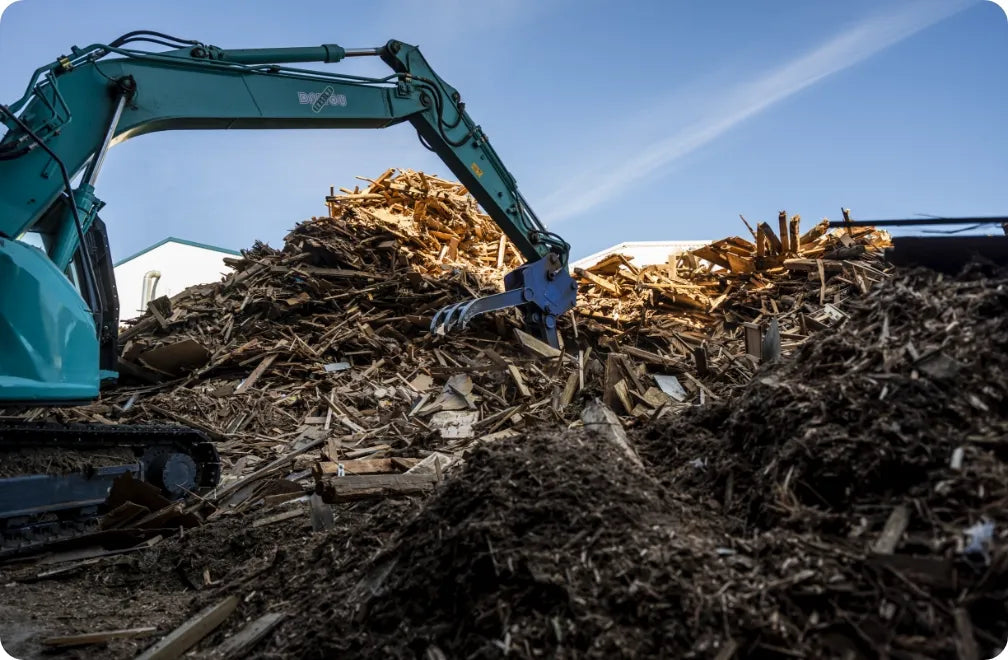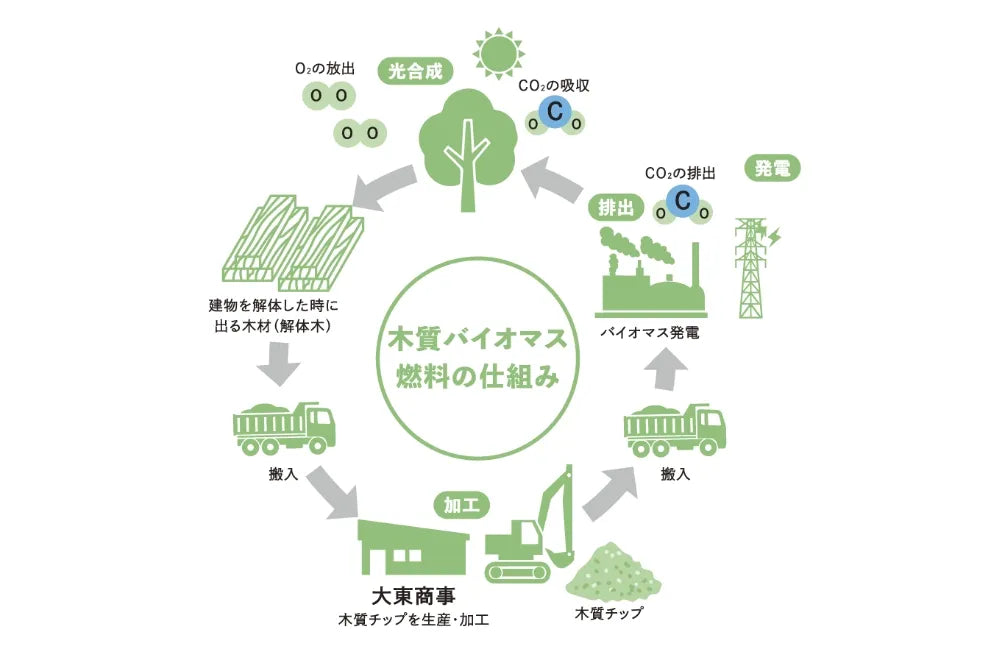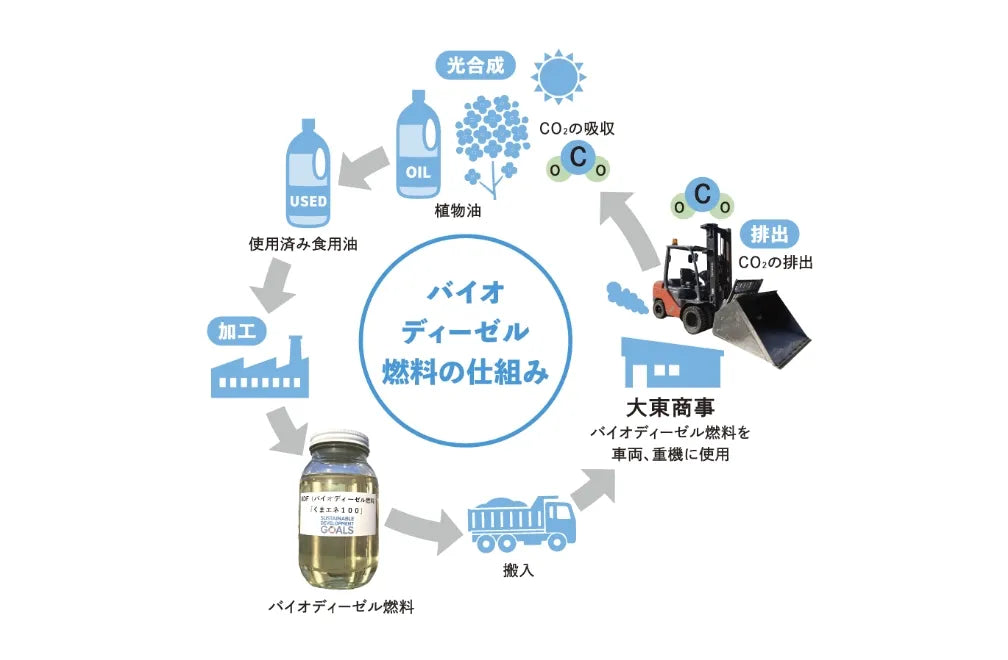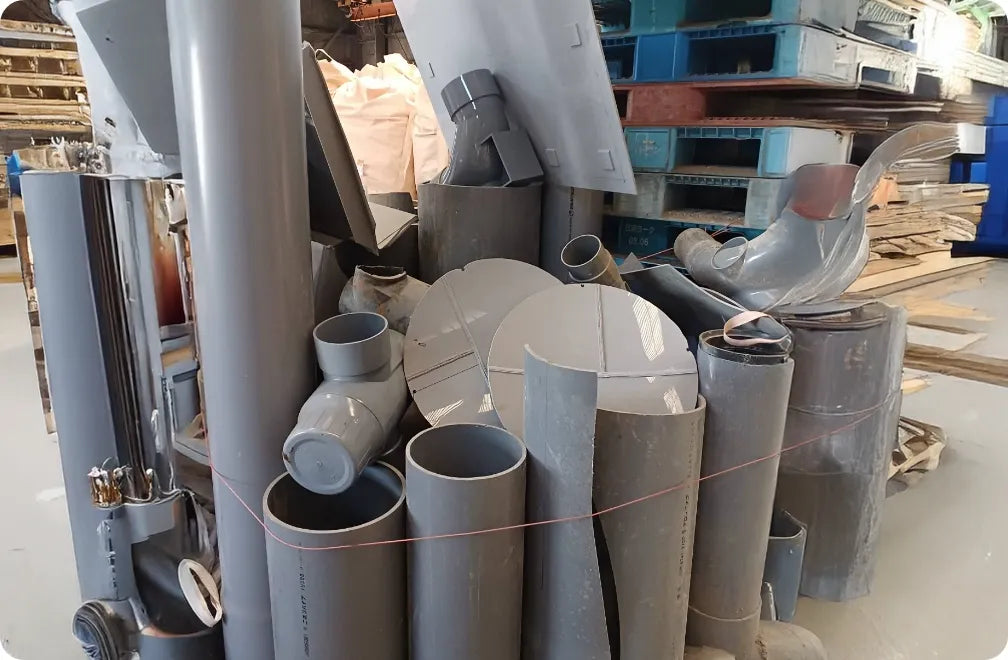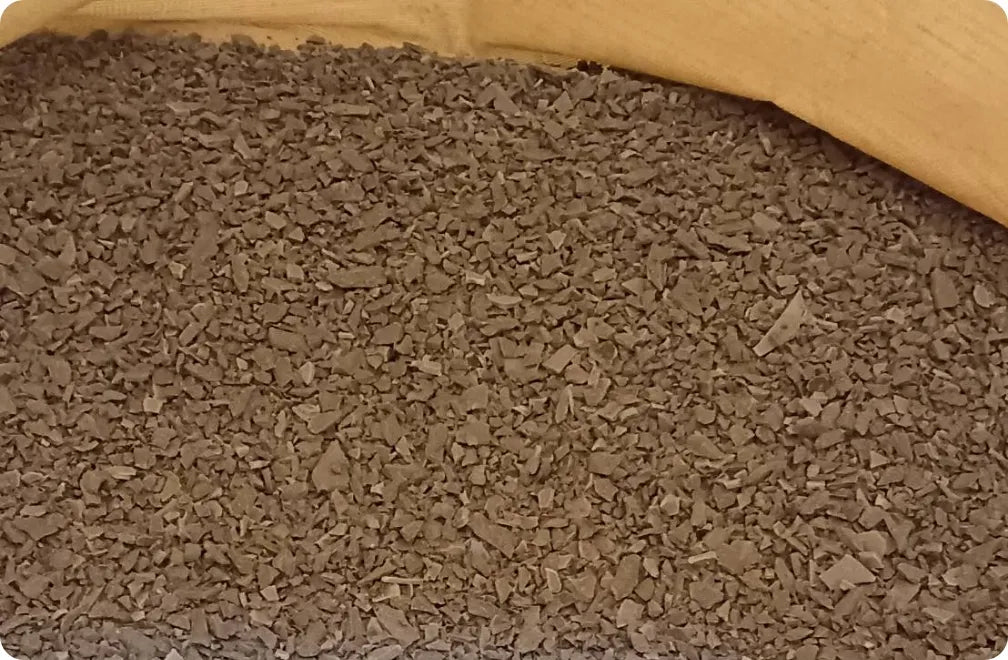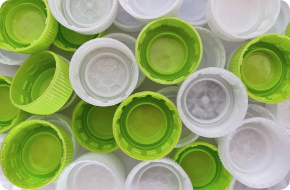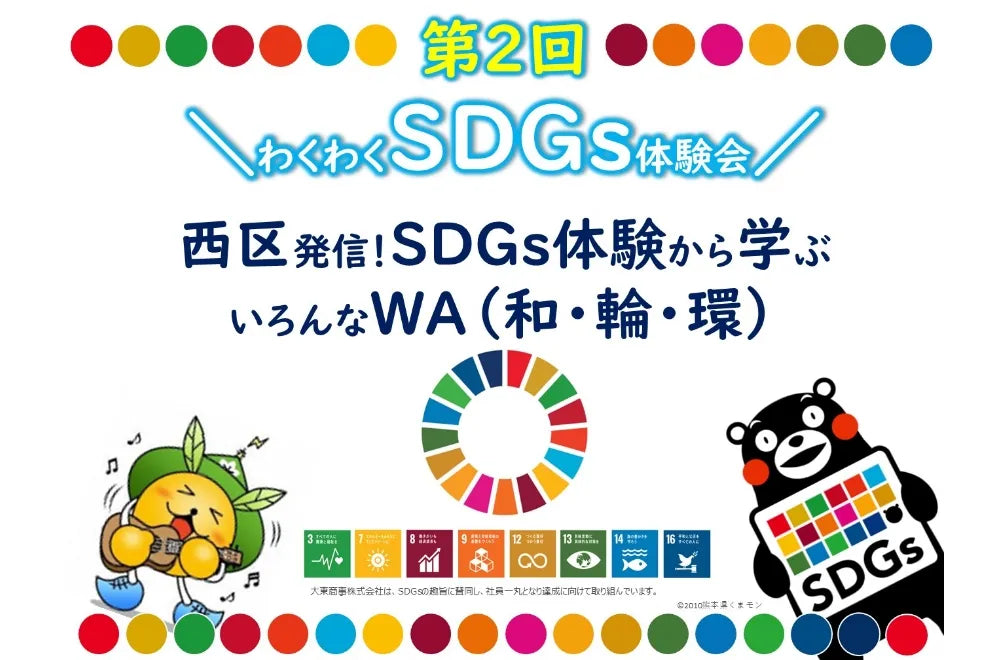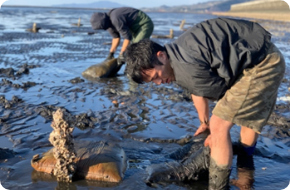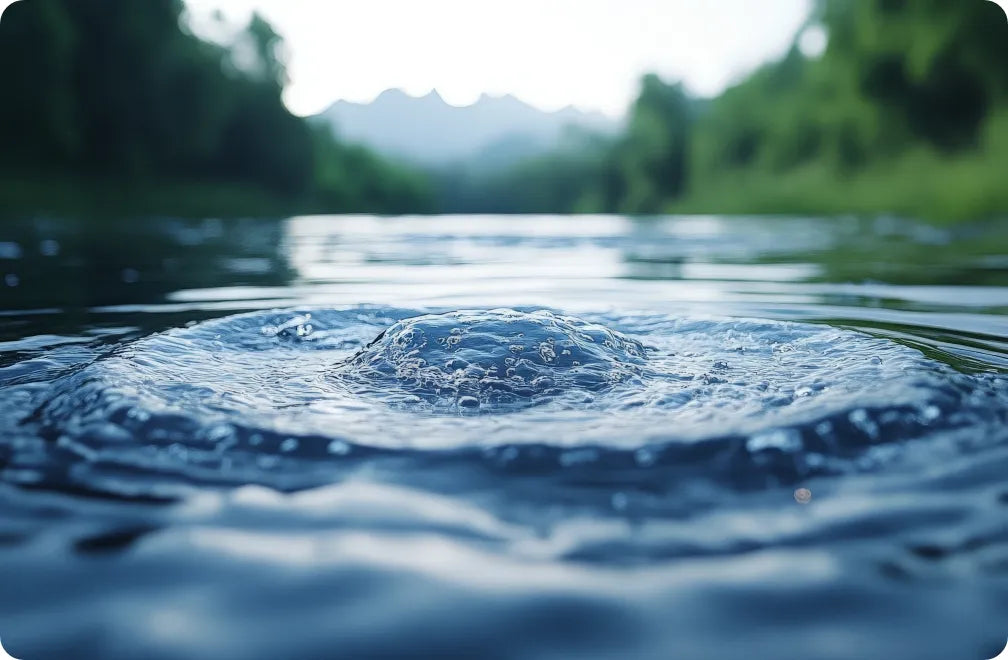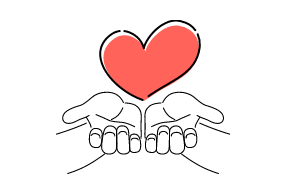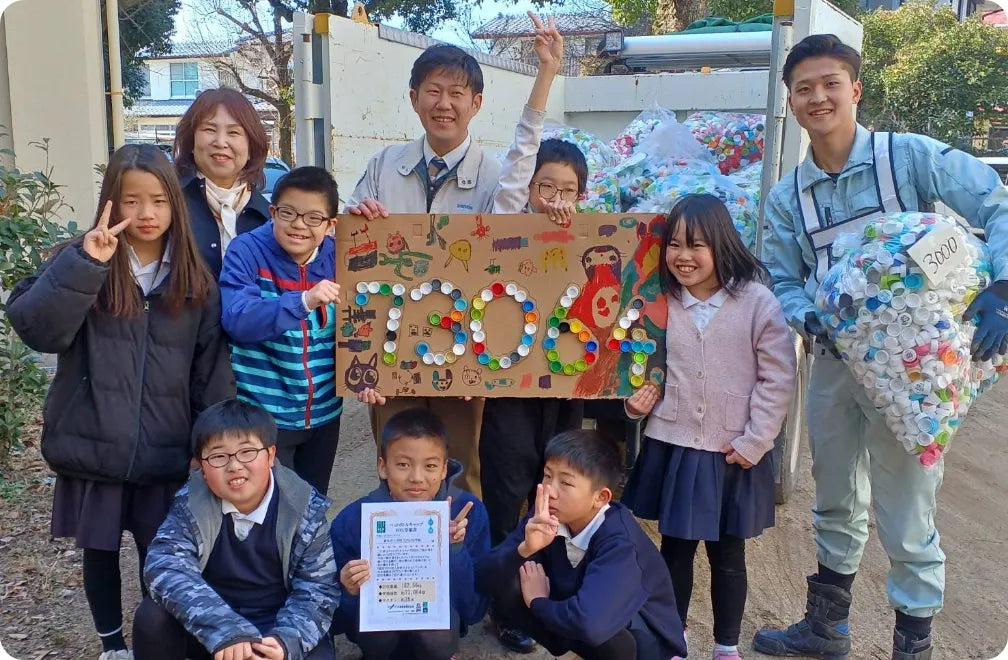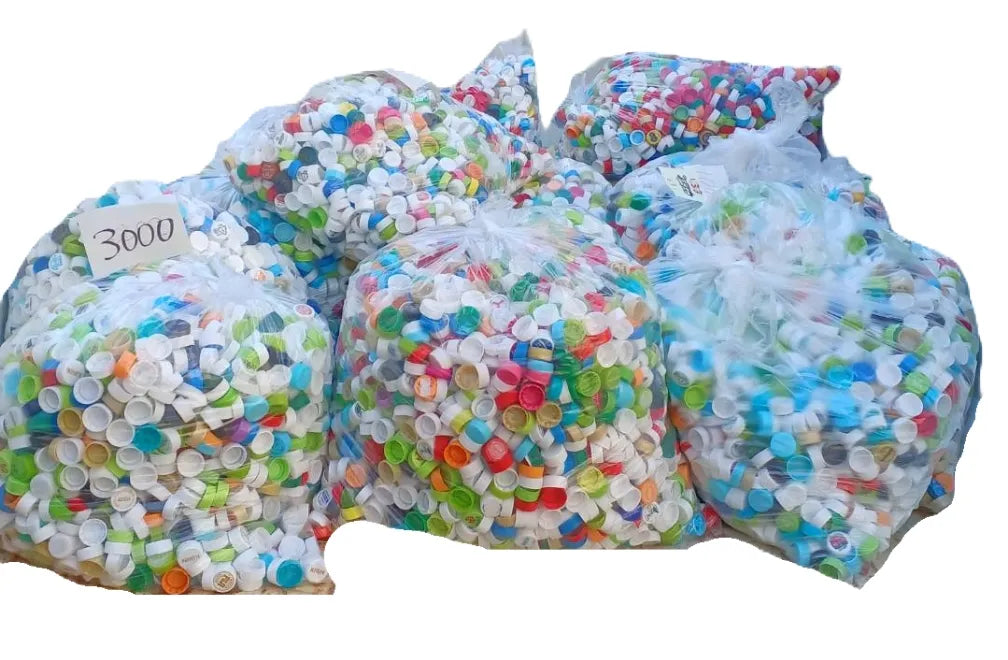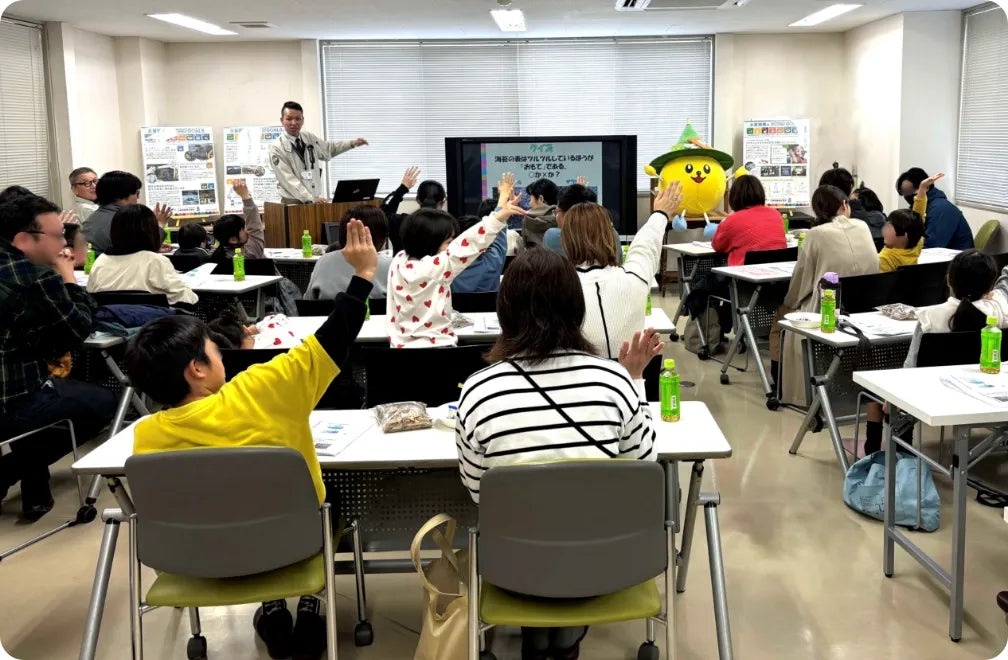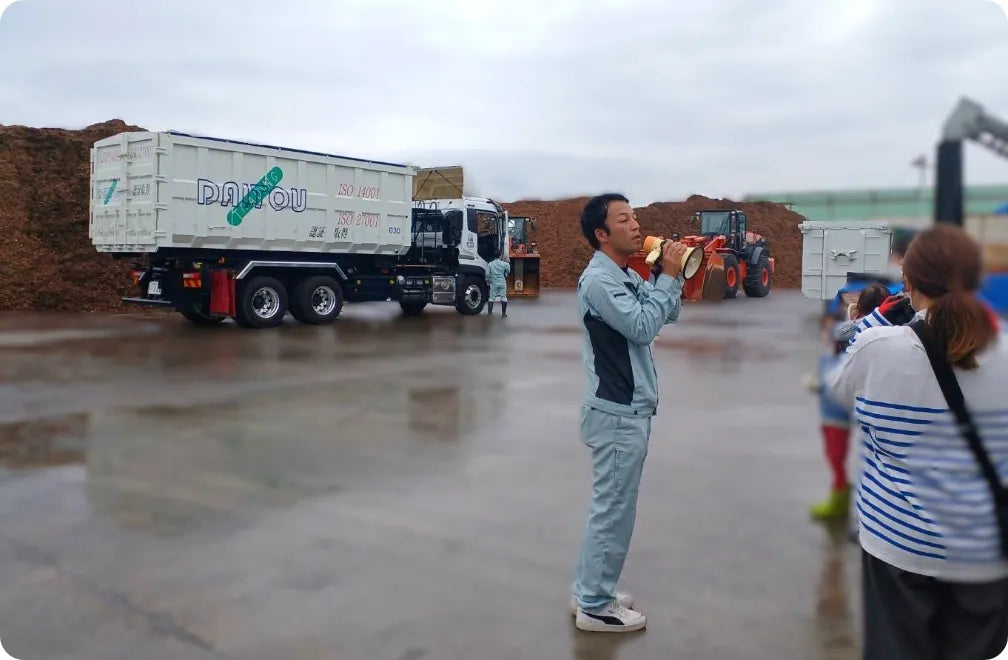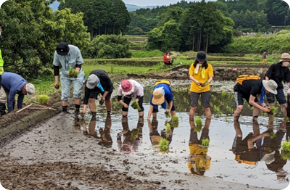Initiatives
Environmental and social initiatives
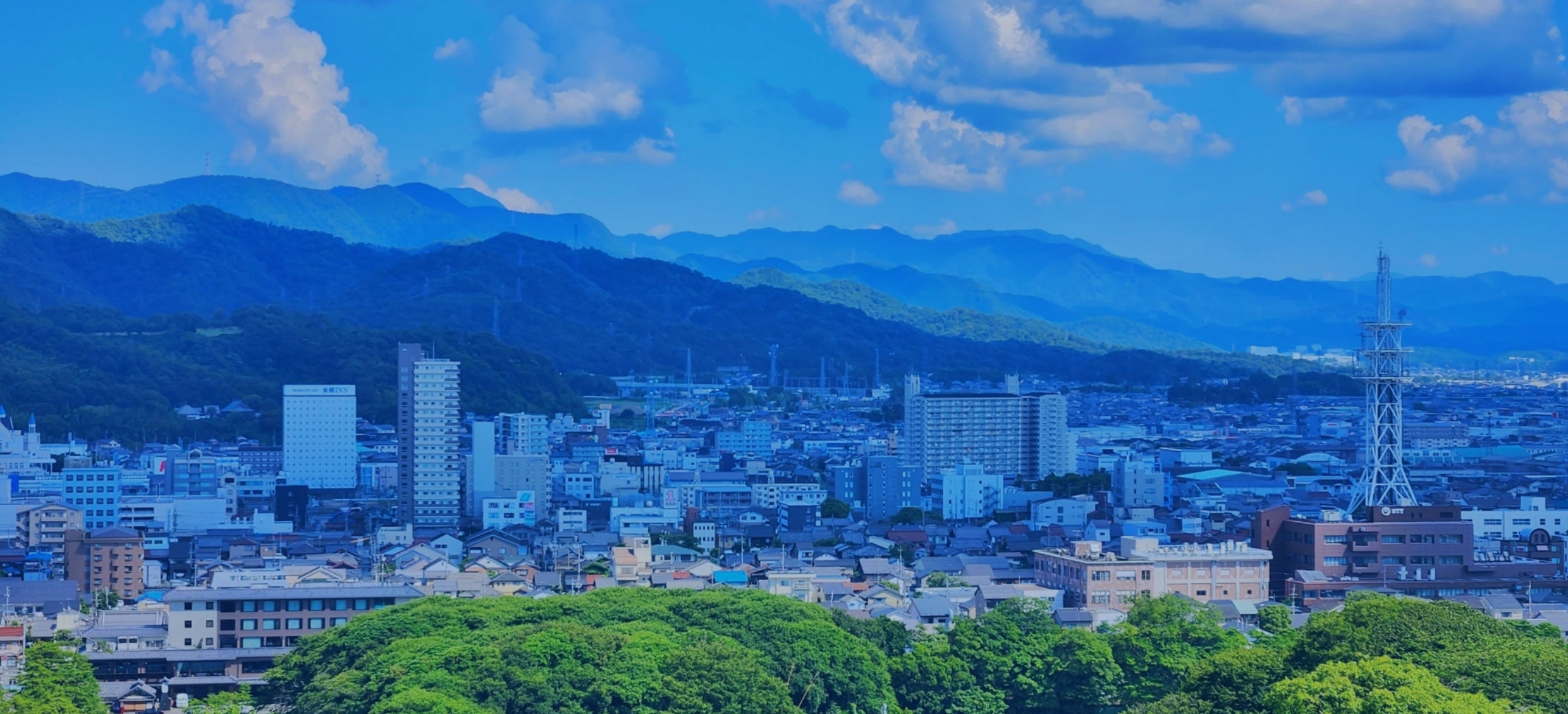
Daito Shoji aims to reduce overall greenhouse gas emissions to zero by 2050 and realize a decarbonized society.
Provision of wood biomass fuel
We crush dismantled trees and other trees to produce wood chips, which we then provide to companies as plant-based biomass fuel (※).
Like fossil fuels, biomass fuels produce carbon dioxide when used.
However, plant biomass absorbs carbon dioxide through photosynthesis during its growth, which offsets the carbon dioxide released during combustion.
For the reasons mentioned above, biomass fuels are treated as carbon-neutral alternatives to fossil fuels in the Kyoto Protocol, and our company is actively producing them.
*Biomass fuel: Fuel made from biological resources (biomass) derived from plants and animals.
Utilization of high-purity biodiesel fuel
We use biodiesel fuel in some of our vehicles and heavy machinery.
Biodiesel fuel is an alternative fuel to diesel fuel made from used cooking oil (waste oil). Until now, used oil was discarded, but it can be turned into fuel through chemicals, and as a carbon-neutral fuel that does not increase carbon dioxide emissions, it can be used in diesel engines of heavy machinery, tractors, trucks, etc.
Biodiesel fuel produces less than one-third the amount of black smoke compared to diesel, and contains virtually no sulfur oxides, making it a fuel that is kind to both the environment and people.
Reference: Kumamoto Prefecture pamphlet "Aiming for a zero-carbon society in Kumamoto with high-purity BDF"
Promoting material recycling
Material recycling is an important method of recycling waste materials as raw materials for new products in order to make effective use of limited resources.
The recycling of metals and waste paper has been promoted for some time, but in recent years it has attracted more attention because of the various problems it causes, such as environmental pollution, global warming, and marine pollution caused by the incineration and landfilling of waste plastic.
By promoting material recycling through business partnerships with our partner companies, we aim to tackle these issues and realize a circular economy.
*The photo shows an example of PVC pipe material recycling.
PVC pipes that have no adhesions are crushed into small pieces and reused mainly as building materials.
Disaster recovery efforts
Large-scale disasters such as the Kumamoto earthquake in April 2016 and the torrential rains of July 2020 (July 2020 heavy rains) generated large amounts of wood waste, including debris from damaged homes, garden trees, and fallen trees, and we took the lead in accepting this in order to help with emergency recovery efforts.
This is possible only because Daito Shoji has a disposal site that can accept and process large amounts of wood waste.
In the event of the Noto Peninsula earthquake in January 2024, our company representative, as the former representative director of the Kumamoto Prefecture Demolition Industry Association, presented our readiness to rush to the scene at any time.
We will continue to leverage the strengths of this business to fulfill our social responsibilities.
Health and Productivity Management Award
Daito Shoji's employees are of a wide range of ages, including seniors. In addition, some of our work involves outdoor work, so we believe it is important for our employees to be able to work every day with good health and energy in order to realize our management philosophy.
To that end, we are proactively working to create a workplace where employees can work safely and securely in their health by implementing health management, providing sufficient health checkups, coordinating with industrial physicians, disseminating health information within the company, and taking measures to prevent heatstroke, among other measures to ensure safety and hygiene.
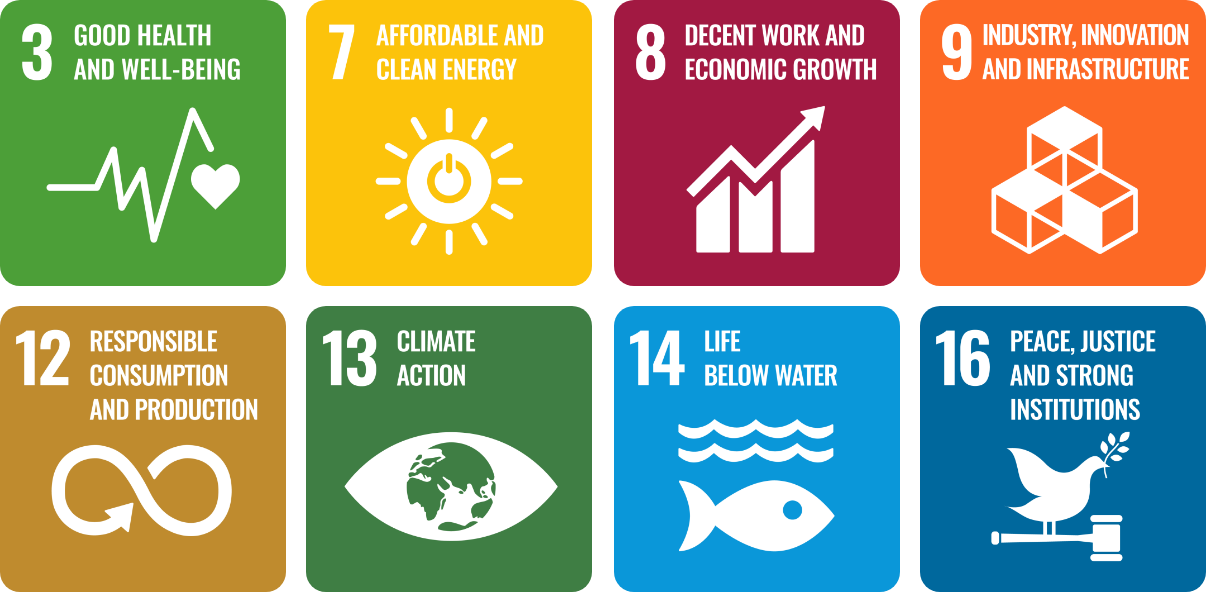
Eco-cap collection
As a partner company of the Japan Committee, Vaccines for the World's Children, we collect plastic bottle caps, convert them into recyclable resources, and donate the proceeds.
(The vaccine will then be replaced by JCV and delivered to children around the world.)
We act as a collection hub in collaboration with companies and organizations that want to get involved but don't know how to go about it.
For more information, please see Vaccines for the World's Children.
We will continue to work with the local community for the children who will lead the next generation.
Hosting an experience-based SDGs event
We are holding experiential events together with local communities and governments in order to make SDGs and recycling more familiar to as many people as possible.
We hope to provide opportunities for people to learn about SDGs and recycling while having fun, through events such as experience sessions using the tidal flats restoration project, workshops held at the Shinko Recycling Center, and tours of large vehicles and heavy machinery.
Tidal flat restoration project
We are working with the Okishin Fisheries Association, Fukuoka University, and Koyo Co., Ltd. to restore the sludge-filled tidal flats to their original state.
This is an initiative to break down sludge and introduce materials that turn it into food for living creatures, improving the environment so that clams and other shellfish can live there. There are still many challenges and we are only halfway there, but we will continue to carry out environmental conservation and business activities through our company's Nature Positive initiative.
Groundwater conservation efforts
Kumamoto is a world-class groundwater city. Groundwater is 100% natural and supports not only life but also industry, making it a resource that must be conserved for Kumamoto.
In Kumamoto, various activities are being carried out to conserve groundwater, the most representative of which is groundwater recharge. Daito Shoji not only conserves water and manages well water in its business, but also actively supports the prefecture and city's initiatives, purchasing rice produced in paddy fields in the middle reaches of the Shirakawa River and participating in rice planting.
References: Kumamoto Prefecture "Groundwater Conservation Initiatives" materials, Kumamoto City Water Conservation Annual Report
Kumamoto SDGs management realization project
This is an initiative to consider ways to create business opportunities through the SDGs together with students from Kumamoto Gakuen University.
As part of the student's Future Newspaper, they predicted that "through the seminar, in 2050 the company will be involved in the "circular economy design business" and will be coordinating environmental considerations."
In order to realize the circular economy that we are currently aiming for, we will strive to become a company that can coordinate with a broad perspective as part of the venous industry.


